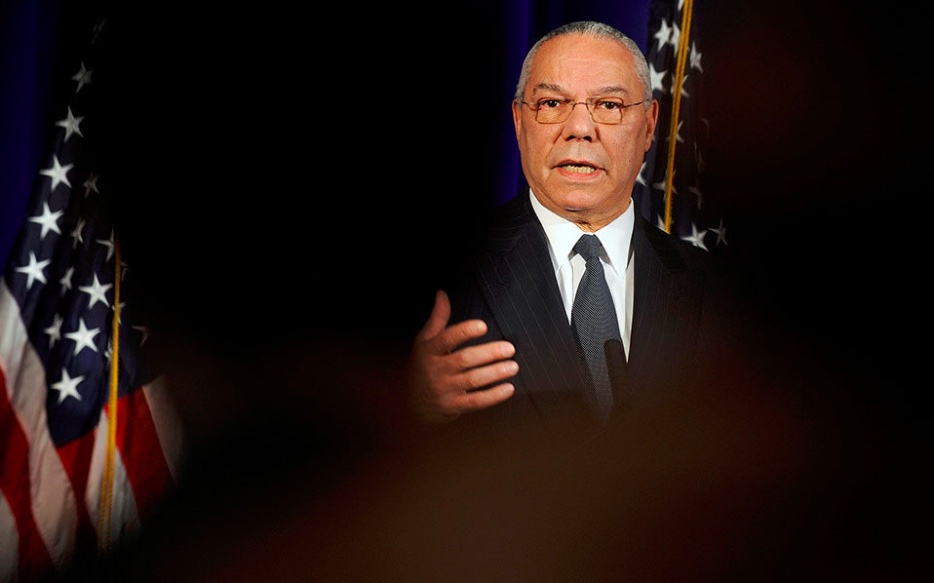The passing of Colin Powell

The former US secretary of state and chairman of the Joint Chiefs of Staff, Colin Powell, who passed away on Monday at the age of 84, was a distinct personality who enjoyed wide acceptance across the political spectrum.
He was respected for his integrity and ethos. A man of consensus, he belonged politically in the center. Until 1995 he had no political identity. After completing his military career in 1995, he joined the Republican Party.
Born into a poor Jamaican family, he grew up in the Bronx, attended public school and college, and later enlisted in the military and served twice in Vietnam. He was awarded five medals.
In 1987, he became national security adviser to President Ronald Reagan and two years later head of the US Joint Chiefs. He was the first black man in US history to rise to the top of the military hierarchy, where he served two two-year terms under Presidents George H.W. Bush, a Republican, and Bill Clinton, a Democrat.
Affected by the traumatic experience of the Vietnam War, he was reluctant to use the US military abroad. Ηe said in an interview that it’s hard to extend a military operation when you see your soldiers being killed on the battlefield. Like other soldiers of his generation, he had not forgiven the political leadership for the way they executed the Vietnam War, which cost the US military a humiliating retreat, although it did not lose a single battle.
“As soon as they tell me [a military or humanitarian operation] is limited, it means they do not care whether you achieve a result or not,” he had said in another interview, referring to the confusion that often characterizes politicians when engaging in military operations.
From this principle derives the doctrine that took his name and according to which the United States should avoid intervening in international conflicts if its vital interests are not at stake and if it does decide to intervene it should do so with set clear goals that can be achieved.
In 1993, he clashed with then-US ambassador to the United Nations and later secretary of state Madeleine Albright, when the latter wanted the US to intervene in Bosnia and he, as commander of the armed forces, was opposed. Albright allegedly asked him what was the point of having the most powerful military machine the planet has ever known if she was not going to use it. To which Powell responded that “American GIs are not pawns on some global game board.”
Following the successful example of the international alliance created by George W. Bush’s father in the Gulf War, Powell got the better of the Pentagon hawks – Secretary of Defense Donald Rumsfeld and Deputy Secretary Paul Wolfowitz – who demanded an immediate strike after September 11, and secured a wider international mobilization.
But his career is not limited to winning the 1991 Gulf War or the international alliance secured in Afghanistan. There is also his speech at the UN Security Council in 2003, where he reassured his counterparts in other countries about the existence of weapons of mass destruction in Iraq – which proved to be untrue – in an effort to curb the reactions of many of them and persuade them to support the American invasion that followed.
In 2004 he actively dealt with two issues of major importance to Greece. In April of that year, he intervened strongly, in the diplomatic background, but also through interviews in Greek, Turkish and Cypriot media, in favor of the Annan Plan for resolving the Cyprus issue, which, however, was rejected by 76% of Greek Cypriots.
In November of the same year, immediately after the re-election of George W. Bush, the United States recognized the then Former Yugoslav Republic of Macedonia (FYROM) as the “Republic of Macedonia,” provoking strong reactions in Greece. He himself had played a leading role in the decision, in an effort – as he later explained to this writer – to prevent a deterioration of the domestic political climate in Skopje.




